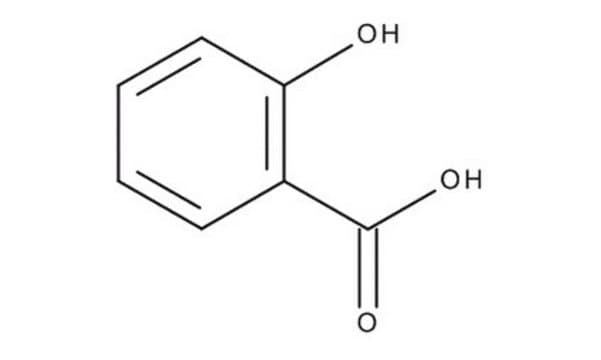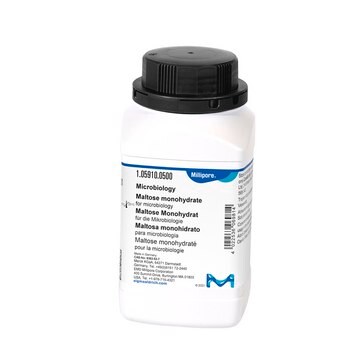105910
Salicylic acid
ReagentPlus®, ≥99%
Sinonimo/i:
2-Hydroxybenzoic acid
About This Item
Prodotti consigliati
Densità del vapore
4.8 (vs air)
Livello qualitativo
Tensione di vapore
1 mmHg ( 114 °C)
Nome Commerciale
ReagentPlus®
Saggio
≥99%
P. eboll.
211 °C (lit.)
211 °C/20 mmHg
Punto di fusione
158-161 °C (lit.)
Stringa SMILE
OC(=O)c1ccccc1O
InChI
1S/C7H6O3/c8-6-4-2-1-3-5(6)7(9)10/h1-4,8H,(H,9,10)
YGSDEFSMJLZEOE-UHFFFAOYSA-N
Informazioni sul gene
human ... ALB(213) , PTPN1(5770)
Cerchi prodotti simili? Visita Guida al confronto tra prodotti
Descrizione generale
Note legali
Avvertenze
Danger
Indicazioni di pericolo
Consigli di prudenza
Classi di pericolo
Acute Tox. 4 Oral - Eye Dam. 1 - Repr. 2
Codice della classe di stoccaggio
11 - Combustible Solids
Classe di pericolosità dell'acqua (WGK)
WGK 1
Punto d’infiammabilità (°F)
314.6 °F - closed cup
Punto d’infiammabilità (°C)
157 °C - closed cup
Dispositivi di protezione individuale
dust mask type N95 (US), Eyeshields, Gloves
Scegli una delle versioni più recenti:
Possiedi già questo prodotto?
I documenti relativi ai prodotti acquistati recentemente sono disponibili nell’Archivio dei documenti.
I clienti hanno visto anche
Il team dei nostri ricercatori vanta grande esperienza in tutte le aree della ricerca quali Life Science, scienza dei materiali, sintesi chimica, cromatografia, discipline analitiche, ecc..
Contatta l'Assistenza Tecnica.







